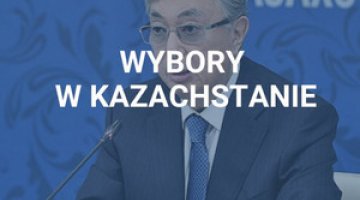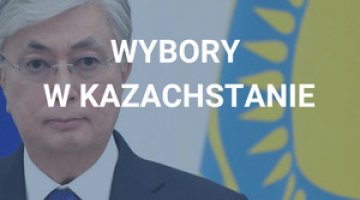Reshuffles in Kazakhstan's ruling elite
Between 21 and 28 September changes were made to key positions in the Kazakh state administration. The then deputy prime minister, Serik Akhmetov, was appointed as the new prime minister and four ministers were changed. At the sametime , Aslan Musin, who he had been considered the second strongest person in the state apparatus right after the president was dismissed as head of the presidential administration,. He was replaced by, Karim Masimov, who prior to the apointement served as the PM and whose term in office was the longest (nearly six years) in Kazakhstan's contemporary history.A long-term ambassador to the US and the UK rlan Idrisov was appointed foreign minister in the new government.
Commentary
- These changes in the main positions in the country are a direct consequence of the events which happened in Zhanaozen in western Kazakhstan in December 2011. The riots in this town, which ended a seven-month strike held by workers of the state-owned oil company, officially claimed the lives of 14 people. This incident has led to the reshuffle which tipped the balance which Nazarbayev traditionally maintains in the elite. In this context, the recent reshuffles are aimed at weakening the position of the group from western Kazakhstan linked with Aslan Musin. At the same time, these changes are supposed to enable Nazarbayev to increase control over the political elite and the situation in the country (particularly in resource-rich western Kazakhstan which is currently struggling with the largest social problems). The officials appointed do not show huge political ambitions, do not threaten Nazarbayev's position and are effective as administrators. It is western Kazakhstan which has been defined as the priority area for the new head of the presidential administration as the internal tension and the threat of terrorism have been growing there for months.
- These reshuffles will not have a substantial impact on Kazakhstan's economic and foreign policies. Serik Akhmetov and his government will above all ensure a smooth introduction of the reforms aimed at “social modernisation” (an improvement in the quality of life in society) which has been promoted by Nazarbayev for several months and which is the government's response to the emerging symptoms of the social crisis. In this context, the priority orientations to date – those being co-operation with Russia, China and the West – will continue. The new prime minister will also to a larger extent seek to advance the implementation of the concept of the New Silk Route (the construction of transport infrastructure) which he advocated when he was transport and communication minister. The appointment of a long-term diplomat who has worked in Western countries means that Kazakhstan wants to develop better relations with the West after these were strained following the incident in Zhanaozen.
-
These reshuffles have not solved the question of Nazarbayev's successor, an issue which has a permanent impact on the internal situation of Kazakhstan. The government is also faced with challenges relating to an anticipated further wave of economic crisis, escalating social tensions, and the growing threat from Islamic radicalism. Finding solutions to these problems will be a test for the new government and the new head of the presidential administration.




